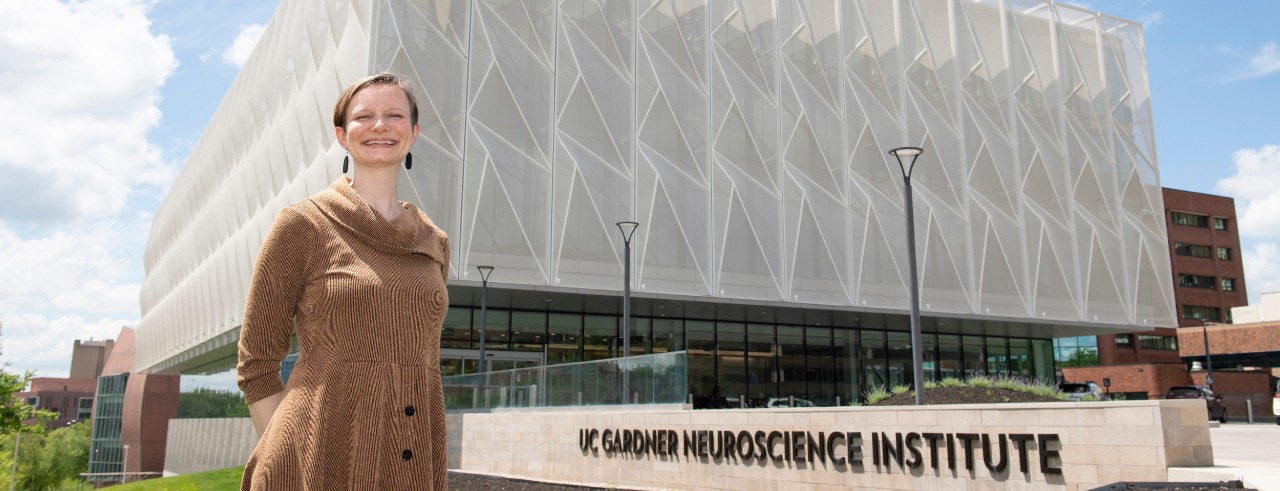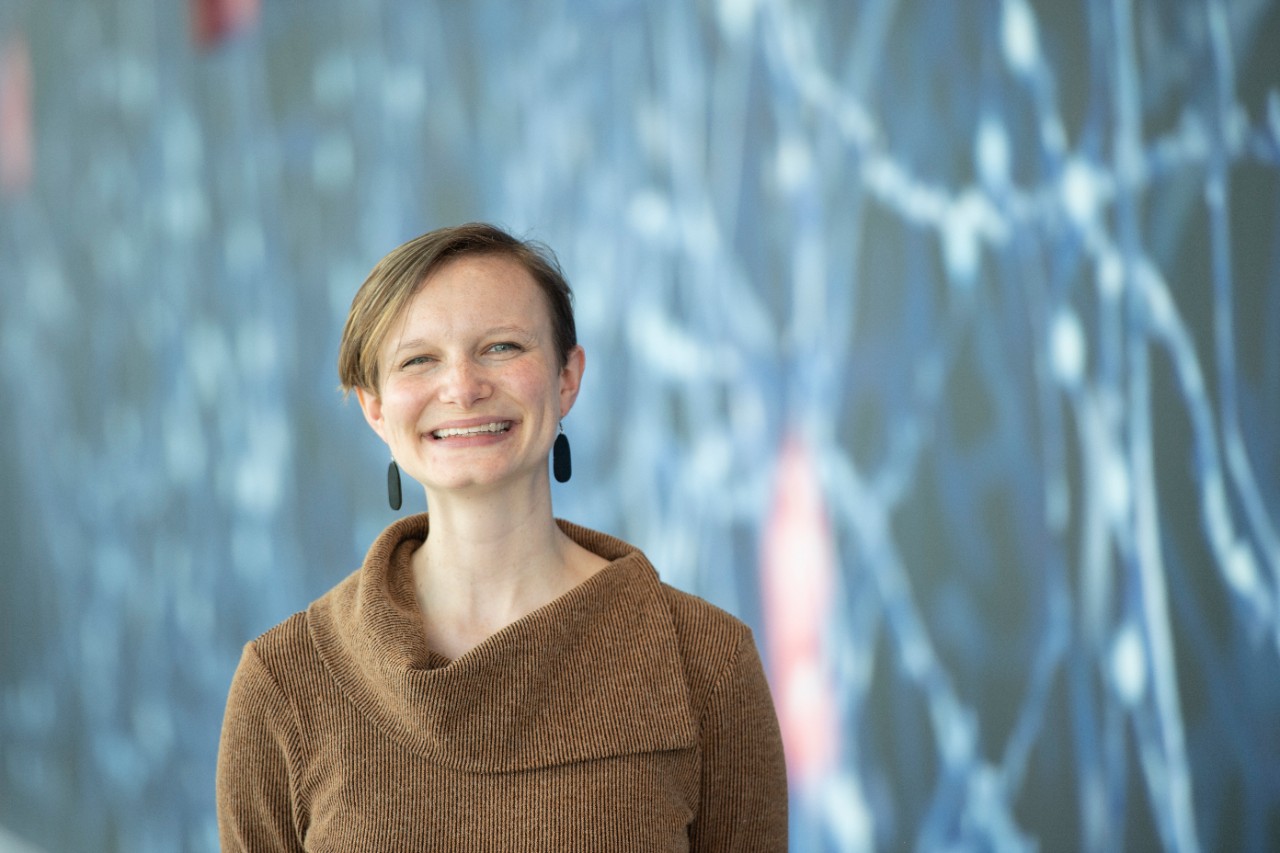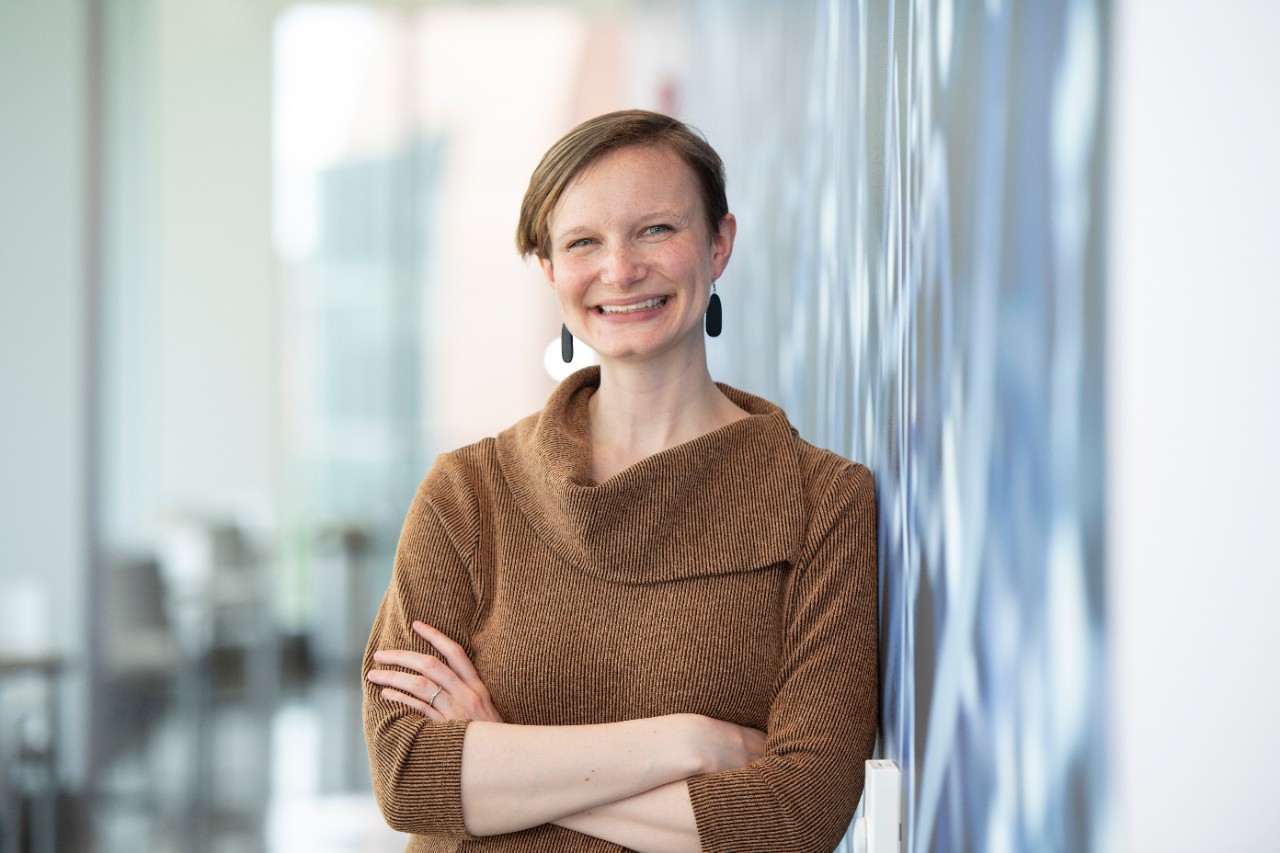
Navigating epilepsy care from childhood to adulthood
UC researcher receives grant to improve the transition of care for pediatric patients with epilepsy
The transition from adolescence to adulthood is tough for most, but adding a chronic condition to the mix can make it seem unmanageable.
Emily Nurre, MD, assistant professor of neurology and rehabilitation medicine at the UC College of Medicine and UC Health neurologist, says this change for pediatric patients with epilepsy can turn life upside down.
“This is a very vulnerable population,” she says. “They are still developing their frontal lobe which can lead to issues with self-management such as adherence to medication and making it to appointments. Many of these patients haven’t been managing their condition because their parents have been doing it for them for years. Then, they’re off to live on their own or attend college and may have not learned the necessary skills to manage their epilepsy.”
The results can lead to missed medications and appointments, worsening of the condition and hospitalization.
This is why Nurre, also a member of the UC Gardner Neuroscience Institute, has made it her goal to create a smoother transition from pediatric to adult care for these patients and to study the best ways to make it successful. The UC Center for Clinical & Translational Science & Training has awarded her a $5,000 Community Partnership Development Grant to help.

Emily Nurre, MD, assistant professor of neurology and rehabilitation medicine at the UC College of Medicine, UC Health neurologist and member of the UC Gardner Neuroscience Institute, says the transition from pediatric epilepsy care to adult care can be extremely difficult for patients. She's studying ways to help with the transition using a CCTST grant. Photo/Colleen Kelley/UC Creative + Brand
“The UC Epilepsy Center, a comprehensive Level 4 epilepsy center, Cincinnati Children’s Hospital Medical Center and Epilepsy Alliance Ohio are all working together to design and implement a transition clinic for patients with epilepsy from child to adult care,” she says. “These are the patients that often get lost in the health care system, and we want to provide them with the resources needed to be advocates for themselves and live, healthy fruitful lives.”
Nurre has published research on this topic in the journal Clinical Pediatrics.
“In the previous study, we talked to providers who have already tried to develop transition clinics — for conditions such as sickle cell disease, cystic fibrosis and diabetes — to learn from their challenges,” writes Nurre. “These clinics often fail because of billing and funding issues, but we also found there are other barriers. There is often a lack of multidisciplinary care in the adult setting. With pediatric care, patients may see psychologists and social workers in addition to their care providers in one visit. To offer these resources on the adult side, it can be helpful to pool community resources.
“For example, in our clinic we are happy to partner with Epilepsy Alliance Ohio to offer psychosocial support. Also, in the adult health care system, care becomes more specialized, meaning patients see more providers with more appointments and clinics to navigate. It can complicate and confuse things.
“There’s no formal process for transitioning, so patients can feel like they are being kicked out of a care team they’ve known their whole life. It can be upsetting and difficult to figure out which sometimes leads to them discontinuing care,” she adds.

Emily Nurre, MD, says extra support is needed when transitioning care for pediatric patients with epilepsy to an adult care setting. Photo/Colleen Kelley/UC Creative + Brand
Nurre, along with Avani Modi, PhD, and Aimee Smith, PhD, both at Cincinnati Children’s, has also participated in focus groups involving patients and their caregivers who were in the process of transitioning or have transitioned to the adult care world to learn about their struggles and concerns.
“Both groups said that a formalized process and a ‘warm handoff’ would help, so that is our goal,” she says.
In this handoff, Nurre says a social worker from Epilepsy Alliance Ohio will accompany patients to their last visit at Cincinnati Children’s and their first visit at UC Health.
“The Epilepsy Alliance social worker will be available to the patient if they have a question or need resources during transition,” she says. “It’s a friendly face that is available to help patients navigate.”
Patients and caregivers often experience fear and anxiety around transition [of care]. We have such an incredible opportunity to help change the trajectory of their lives.
Emily Nurre, MD
Nurre and her team have already created a transition clinic that they hold one day a month but they hope to expand.
“Our goal is to create education materials with the input of providers at Cincinnati Children’s to help educate patients before they begin the transition to adult care,” she says. “In fact, we’ve created policies to begin that in the pediatric clinic, and a goal is to include patients in the care process from the start, preparing them for what’s to come. We want to increase independence as early as possible and involve them in activities like calling their doctor to schedule an appointment, filling their own prescription and understanding their illness.”
Nurre says they will eventually track transition readiness and outcomes for these patients as they navigate both systems of care.
“Patients and caregivers often experience fear and anxiety around transition,” she says. “We want to see them succeed and grow. This is such a fun time in their lives, and I love working with this group of patients. We have such an incredible opportunity to help change the trajectory of their life.”
Featured photo of Emily Nurre, MD, outside of the UC Gardner Neuroscience Institute. Credit/Colleen Kelley/UC Creative + Brand
For more information about the transition clinic or to schedule an appointment, call 513-475-8730.
Next Lives Here
The University of Cincinnati is classified as a Research 1 institution by the Carnegie Commission and is ranked in the National Science Foundation's Top-35 public research universities. UC's graduate students and faculty investigate problems and innovate solutions with real-world impact. Next Lives Here.
Related Stories
Cincinnati a top destination for street art, museums
February 27, 2026
Discover why Cincinnati is a top destination for street art and museums, ranked among USA Today’s 10Best for 2026. Explore how University of Cincinnati research shows public art boosts community vitality, and find the best things to do near UC’s campus for students and visitors alike.
Intrapreneurship: Strategies to promote internal innovation
February 27, 2026
Intrapreneurship encourages employees at large companies to innovate and test ideas with an entrepreneur’s level of freedom. Learn how to become an intrapreneur in your organization.
'Paradigm-shifting' study confirms effectiveness of long-acting HIV treatment
February 26, 2026
The results of a clinical trial involving the University of Cincinnati, recently published in The New England Journal of Medicine, show people failing HIV treatments with oral medications were able to be treated successfully using injections.
